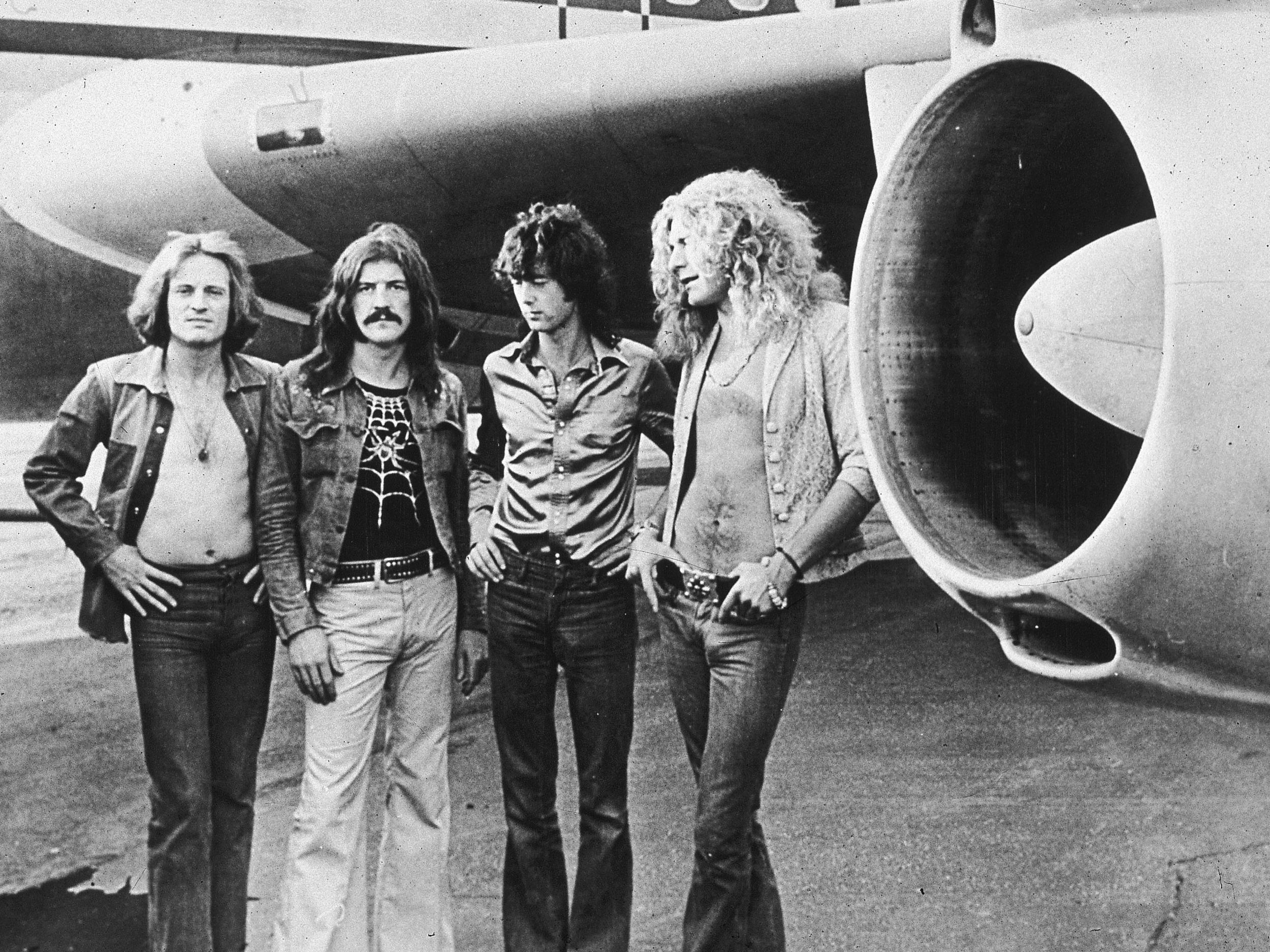The filmmakers behind a new Led Zeppelin documentary have revealed how guitarist Jimmy Page put them to the test before agreeing to be involved in the project.
Becoming Led Zeppelin, the first film to be approved by the storied rock band, documents their origins and rise to one of the biggest acts on the planet just two years after their debut tour.
It is out now in UK IMAX screens before a non-IMAX release this weekend (8 February), including in the US and Canada.
Speaking to The Guardian, British filmmaker Bernard MacMahon – known for his American Epic documentary about the first recordings of roots music in the United States – recalled his meeting with band founder and guitarist Jimmy Page.
“I wondered if he had brought sandwiches,” MacMahon said of the moment Page turned up to a London hotel in 2017, carrying Waitrose shopping bags.
The filmmaker showed him a leather-bound book containing the storyboard and began talking about his idea for the film. Page apparently checked that MacMahon knew which band he was in when he met his future bandmate, Robert Plant.
When MacMahon answered, “Hobbstweedle”, Page apparently remarked: “Very good. Carry on.”
Hours later, the Waitrose bags turned out to contain Page’s old diaries dating back to the Sixties. He told MacMahon he was “in” but he would have to convince the other bandmembers, too.
Page then invited MaMahon and his partner, Allison McGourtey, to visit Pangbourne – the village where Page owned a riverside cottage and where rehearsals for the band’s first album took place.
Had MacMahon and McGourtey declined, it emerged, they would have lost the film.
“It had been a test,” McGourtney said, quoting Page: “‘If you had said no to Pangbourne we wouldn’t have done the film.’”
This month marks the 50th anniversary of Led Zeppelin’s sixth studio album, Physical Graffiti – the first record to be released under their new label, Swan Song Records.
A critical and commercial success, Physical Graffiti debuted at No 1 on the UK albums chart and No 3 in the US, and was promoted with a US tour and five-night residency at Earl’s Court in London, the latter which attracted a total audience of around 85,000 fans.

“Physical Graffiti was the first piece of Led Zeppelin product on our own label, the right album for the right time,” Page told The Independent in a 2015 interview, while marking the album’s 40th anniversary. “We had material that was left over from the fourth album and needed to be heard.
“Other people had done double albums and I was really keen to do a double showing all that we were capable of, from the sensitive guitar instrumentals through to the density of something like ‘In the Light’ and the urgency of something like ‘In My Time of Dying’. Every track has its own character.”
Of the band’s legacy, he said: “Some bands have done terrible things, some bands have done really good things, playing in the spirit of Led Zeppelin. You’re only passing on the baton really. What does matter is that we’ve managed to make a difference and quite clearly Led Zeppelin’s music did.”







